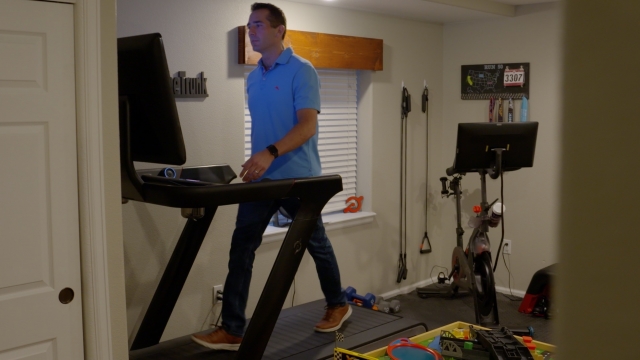"Lord, I don't want to die. I got so much to live for," Leroy Ellsworth, a 41-year-old COVID-19 patient, recorded in a message from his hospital room.
"The fever came out of nowhere," Jovie Jose, a 25-year-old recovered COVID-19 patient, said.
"It felt like a cement block was just sitting on my chest," Jessica Kelley, a 39-year-old recovered COVID-19 patient, said.
We’ve heard about COVID-19-related breathing problems or fever, but doctors are warning about long-term recovery complications of COVID-19 patients, especially those under 50.
"People do need to pay attention to this," said Dr. Mark Rupp. He is the chief of infectious diseases at Nebraska Medical Center.
"Even if you're younger and you don't have those comorbid conditions, you can get sick, and you can get seriously ill or even lose your life," Rupp told Newsy.
"Especially young patients show this hyperinflammation also leads to what we call hypercoagulability, which means the blood clots, and this leads to a cardiac arrest," said Dr. Phil Stahel, chief medical officer at The Medical Center of Aurora.
"Some of these patients come in, talk and die within an hour from an acute cardiac arrest. And even after their recovery, we've seen patients in horrendous stories," Stahel said.
He says about 25% of young patients show a different pattern of infection: inflammation that knocks out a patient's organs. in some instances, patients have had heart attacks or strokes, kidney failure, or pressure sores on their skin.
"It starts with redness around the skin. Then the skin breaks down. And subsequent to that, the wound could get deeper, all the way to the bone. What we've seen in the COVID patients that this happens within days, and it can't be stopped, and you end up with a huge hole in your back that goes all the way down to bone and needs to be covered with plastic surgery," Stahel said.
The recovery for COVID-19 patients lasts several weeks or even months in some cases, doctors say. They’ve also mentioned mental and cognitive weakness, kidney replacement and lung transplants.
But recovery is possible. Jason Jahanian, a marathon runner, has been recovering since contracting the coronavirus in April. He was on a ventilator for 14 days and ECMO for 11. He recently hiked a 14,000-foot peak in the Rocky Mountains.
"Any improvement is an improvement, and although we all may be improving at at different rates, as long as you're improving, as long as you're pushing yourself, you will get there," Jahanian said.
Jahanian is quick to note he considers himself a remarkable exception, and that he still has a month’s worth of blood clotting medication to go through. He also plans to care for his mental health, as he’s suffered from something called "COVID delirium."
"The mental health part is extremely, extremely important. Not only are you seeing life through a new lens, a more appreciative lens, but also those — those dark memories, ... although they faded a bit over time, they're still there. You can't help but think about some of those feelings and dreams and hallucinations you went through. They still rear their heads occasionally, but it gets better," he said.
"A lot of young patients may not get really sick from that infection, but we still don't know who does and who doesn't. And until we know who is at risk and until we have the vaccine, the only way to keep the community safe is to be respectful. By wearing masks, social distancing and most importantly, avoiding large crowds, indoor gathering, which is probably the single root cause of the current surge we see in the southern and southeastern states at this time," Stahel said.


